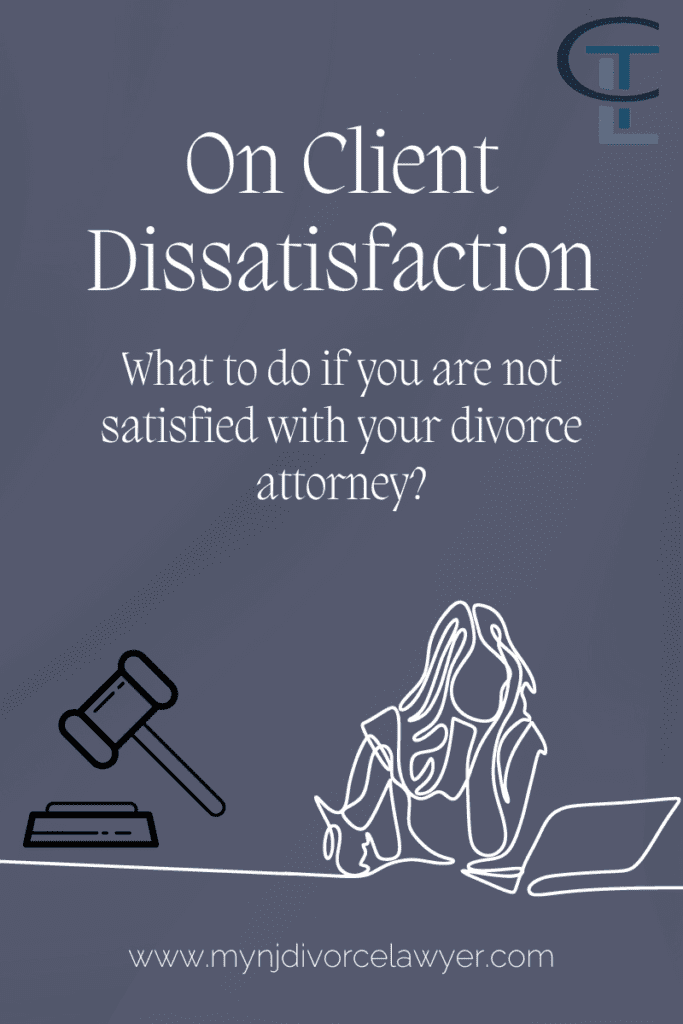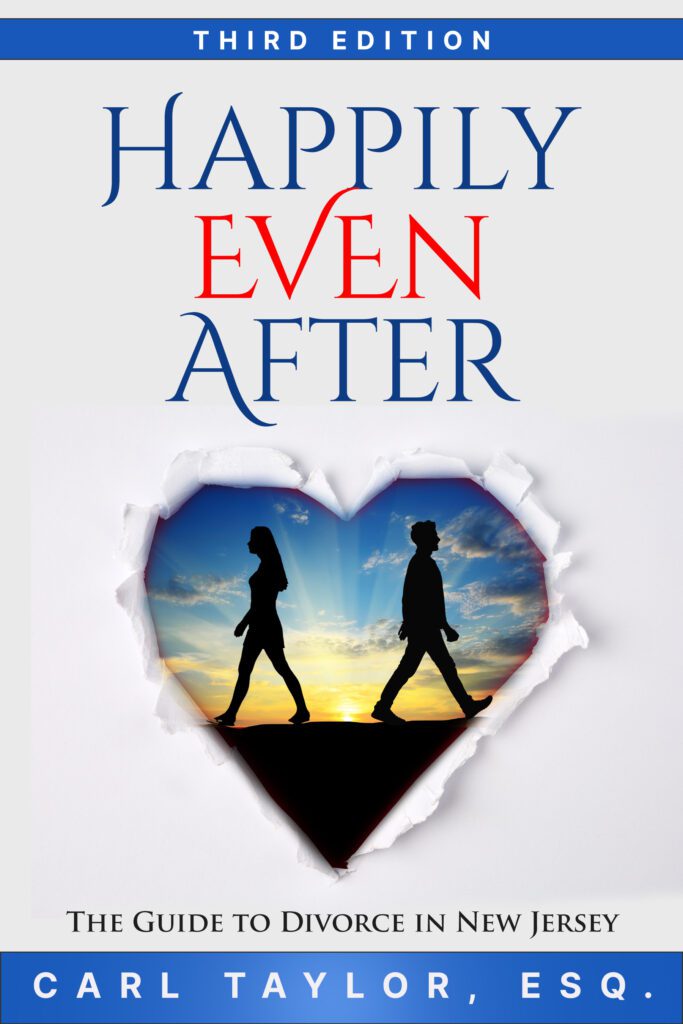
I have a friend from another jurisdiction that called me a few times about their divorce. When I told this friend that I could not provide legal advice (because it was a different jurisdiction and the friend was represented by counsel), they asked if I could merely listen to their situation. In sum, they wanted to know whether or not to change divorce lawyers. My friend described various issues they had with their divorce lawyer. Specifically, from their perspective, the lawyer was:
• Slow to respond or communicate;
• Dismissive of ideas;
• Sent bills that were difficult to understand and seemed overly expensive;
• Failed to push the case forward and seemed to be dragging it out;
• Did not educate my friend about rights and responsibilities or what the game-plan was moving forward.
I listened and when my friend was done I asked whether they had told any of this to their attorney. The answer was a swift “no.” My friend had been unhappy for nearly a year, but had dutifully paid the invoices each month, replenished the retainer, and had apparently not communicated any outward signs of resentment or unhappiness (other than with how the case was proceeding generally). Lawyers have a general ethical requirement to communicate with our clients, but (retainer language aside) there is no such requirement for clients to effectively communicate with us.
What Should a Client Do if Unhappy with Their Divorce Lawyer?
This was a great lesson for me because I was able to see a divorce through a client’s perspective without any prior history or my own opinions or emotions being involved. I know this person is logical, hardworking, and not a difficult person to get along with. It was interesting to see things through the lens of a client.
And I will be candid here. I have had clients advise me they are not satisfied with the process and at times not happy with some of my advice (sometimes emphatically so), but I could always brush it off as the client being the type of person that would not be satisfied with a reincarnated Clarence Darrow representing them (or so my fragile ego likes to believe). And besides, you will not be able to get through hundreds of divorces, as I have, without some dissatisfaction. Right?
Now I understand — as management books teach us– that there is also likely (for any professional services firm) a group of seemingly satisfied (on the surface at least; if not overwhelmingly so) clients that are in fact quite unhappy. So what can we do as attorneys and clients to better communicate? The mission since I opened my firm has been to educate clients about the divorce process and to have consistent and strong communication with my clients. I am an attorney that will at times give my clients my cell phone and will attempt to answer their calls even on weekends, at night, or sometimes during holidays. But that’s not sufficient–because some people are simply conflict avoidant.
There are some clients (I hate to admit to myself) that may not be satisfied with me but I will never know. They may be searching the web right now or reading books, learning about changing divorce lawyers.
As an attorney, I really want to know when my clients are unhappy with me, our staff, the direction of the case, or the firm in general. I would prefer you not present a pleasant facade while likely becoming more embittered at the costs, at the results (or lack thereof), etc. If you buy a bad slice of pizza it’s $2.00 down the drain and the next day you’ve forgotten about it. If you hire a lawyer you’re not satisfied with you will spend at least thousands of dollars with no guaranteed result. So what can we do to try and improve these situations:
How to Improve Attorney and Client Relations
• Lawyers and clients have to always endeavor to be honest with one another. If a client has a weak argument or is about to file a Motion that will cost thousands of dollars without a great chance of success then this is a discussion that should be made from the outset. Likewise, if a client does not understand a legal concept or does not understand why a lawyer took a specific action then they should bring this to the lawyer’s attention;
• Lawyers should follow up with clients regularly to ensure the client understands the process, is satisfied (or not) with the status of the case and the services rendered, and should consider using client surveys or other anonymous methods to improve service quality to clients;
• Bad news in a client’s case should be brought to the client’s attention immediately and honestly presented;
• Lawyers should encourage being challenged by clients. My clients have found errors in my agreements or misunderstandings of what I thought they wanted and their speaking out has assisted the case in moving forward. It’s in many ways a team-effort and although lawyers have greater training and are considered the “expert” in the matter (that is why they are being paid), everyone is fallible and today’s clients are more sophisticated than ever thanks to technology and the internet;
• Lawyers and clients should not be afraid to walk away if a case is not a good fit. I’ve had cases or clients where I’m simply not a good fit. A long initial consultation hopefully weeds these cases out but sometimes it only becomes apparent after a few weeks or months. It is a situation that rarely improves and can be harmful to both parties. The initial consultation is a mutual vetting process. There should be no hard feelings on either side if one party or the other decides not to work together.
• Lawyers should provide resources to clients to advise them about the process and should not sugar-coat the process or the likely results. This saves clients time and money and helps make discussions between attorney and client more productive. Many other lawyers do the same. I would rather a client seek resources through my website (that I have drafted and/or vetted) rather than from the internet at large, which may contain information that is inaccurate or relevant to other jurisdictions.
Conclusion
The above are some of the strategies I have implemented to bolster the attorney-client relationship I have with my own clients. I hope they provide you with some insight into your own matter. The last thing you want, when attempting to leave a dysfunctional personal relationship, is to engage in a dysfunctional professional relationship with your attorney. Through strong communication, you can remain on solid footing, or find your way back to a better working relationship.

Partner with Carl Taylor, Esq.
Ready to Find Your Happily EVEN After? Call Today at 609-359-3345 to Schedule a Confidential Consult (or click here to self-schedule online) and Receive a Free Copy of the 3rd Edition of my 200+ page book, Happily EVEN After: The Guide to Divorce in New Jersey.
